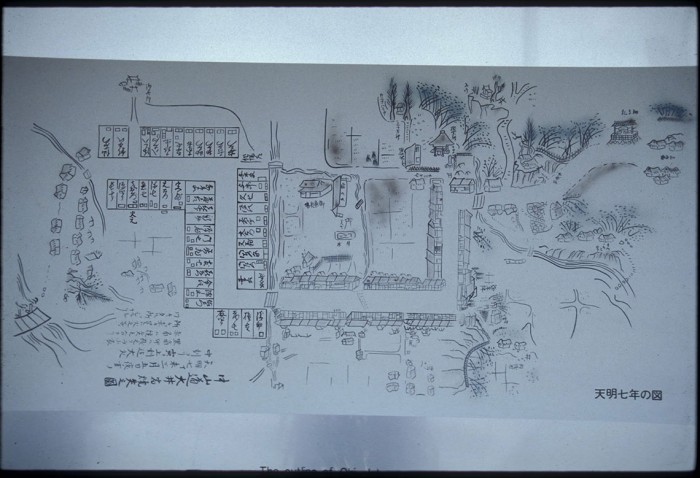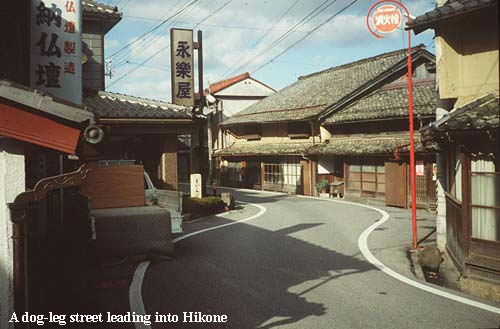
In Chinese tradition, evil spirits can only travel in straight lines. The approaches to villages or even individual houses, therefore, often require visitors to make a 90 degree turn before entering, so that no evil spirits may be brought in. In Japanese post-towns (and castle towns) this feature has also been adopted, although the reason has more to do with military strategy as spiritual well-being.

The road through most post-towns takes an apparently inexplicable right-angled bend or a combination of two such bends. Usually at the entrance to a post-town, travelers were forced to turn their side to the general direction of the road. A number of theories have been suggested to explain why this was so. Sometimes the bend was supervised by armed guards who checked the credentials of all travelers as they passed through. Forcing the traveler to turn both slowed him down and possibly confused potential aggressors. As in castle towns, the bend in the road made it impossible to see in which direction the road progressed. It also made it impossible to see the honjin from afar, which would normally have been the target for assassins seeking to get rid of the (temporary) occupant who might be a prominent daimyo. It is also suggested that these bends in the road merely intimidated travelers, who were forced to follow the line dictated by the shogunate authorities. The road layout was borrowed from Chinese tradition (as with many other features on the highways), and the origins of masugata may have a lot to do with folk superstition. On the other hand, all other evidence from the 17th century to explain their function suggests a military purpose. Masugata are also used as a principle for constructing gates in the walls of castle towns. The square shape of the walls around the double right-angle turns that the road going through the gate takes form a masugata which leaves invaders exposed to arrow and gun fire from defenders on the elevated walls of the gate.
The term masugata means literally ‘in the form of a square measuring box (masu)’. Masu are better known today as square wooden cups from which cold sake is drunk (over a pinch of salt) at New Year or in the hot summer months. Masugata have survived in most post-towns, providing frustration for the modern car driver.

